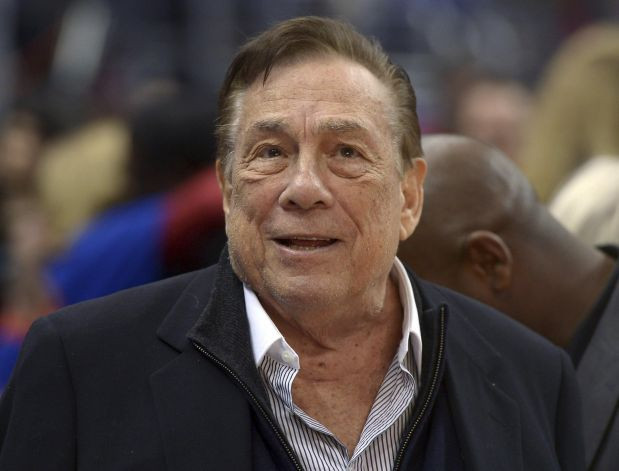Donald Sterling Banned From NBA: Adam Silver’s Ruling Against LA Clippers Owner Applauded, But Should It Be?
Sterling’s offensive views were well known, but it took a viral sound bite for the NBA to act.

The collective cheers could be heard from every corner of Twitter. Donald Sterling, known racist and owner of the Los Angeles Clippers, was banned for life from the National Basketball Association, a fitting punishment for a man who was recorded telling his mistress not to bring black people to his games.
But some say the celebratory tweets and blog posts are premature, even though the decision is the harshest penalty ever issued by the league. “I don’t think this will be a watershed moment that ushers in a transformation in terms of race in the NBA and in society at large,” said David J. Leonard, a race-relations scholar and co-editor of “Commodified and Criminalized: New Racism and African Americans in Contemporary Sports.”
NBA Commissioner Adam Silver, who stressed a zero-tolerance policy toward racism at a press conference on Tuesday when he announced Sterling’s penalty, was immediately lionized on social media for handing down what many consider to be the right decision.
But in a phone interview, Leonard said Silver’s ruling, while suitable in severity, only highlights the NBA’s larger failure to confront the issues of racism that have long plagued the organization. Sterling is a symptom of a bigger disease, Leonard said, a repeat offender who should have been held accountable long ago. Indeed, his disgraceful attitudes toward racial minorities have been widely known for several years (ESPN wrote about “Sterling’s racism” in 2006), and Silver, who has refused to talk about Sterling’s racist past in press conferences, has personally known Sterling for two decades. And yet, the NBA conveniently managed to look the other way as Sterling took a franchise he purchased for $12.5 million in 1981 and built it up to its current value of nearly half a billion dollars. “Not only did the NBA not hold Donald Sterling accountable, they continued to empower him and line his pockets,” Leonard said.
So why hold him accountable now? Sterling’s punishment, of course, followed four days of immense public backlash over an audio clip that contained a spate of racially charged comments that he’d made during a conversation with his girlfriend. As calls for punishment grew, advertisers began pulling their support for the Clippers, while the volume of criticism from players, fans and the media grew louder with every passing day of inaction. Tuesday’s outcome was in many ways a foregone conclusion.
The punishment not only includes a lifetime ban from associating with the Clippers and a $2.5 million fine, but also it will likely result in Sterling’s ouster from the entire NBA, whose bylaws allow the termination of an owner with a 75 percent vote among league owners, as Silver revealed on Tuesday. That means Sterling, in all likelihood, will be forced to sell the team. While some spectators were surprised by the severity of the ruling, others say it was simply a display of good business sense. “With sponsors deserting the team, and the league under all kinds of scrutiny, it’s just not tenable for this guy to continue as one-thirtieth of the voting power of this league,” Gary R. Roberts, a sports-laws scholar and founding member of the International Sports Professionals Association, said.
In the offending audio clip, which was recorded without Sterling’s knowledge and first published by the gossip website TMZ, Sterling is heard castigating a female thought to be his girlfriend, V. Stiviano, for posing for an Instagram photo with NBA legend Magic Johnson. It’s an offensive rant by any definition, but while few would hesitate to condemn the comments, some say the ever-increasing cycle of outrage that accompanies the private lives of prominent figures is no reason to celebrate.
“For me, I find it very troubling that in America we’ve reached a point where we can’t have private conversations without risking our lives and our livelihoods,” Carol M. Swain, a political scientist at Vanderbilt Law School who studies race relations, said. “I would rather know what a person is thinking than deal with individuals where you’re not sure where they stand.”
It all gets at the larger question of what Sterling’s ouster means in the long term: Is it a quick-and-easy exit for a distasteful person, or an opportunity to foster real change? Leonard, for one, said he doesn’t think change is going to begin and end with the end of Sterling. “The question is, do we look elsewhere,” he said. “Do we use this as a moment to talk about bigger issues of racism and injustice? Or do we take this as a moment to congratulate the NBA and congratulate ourselves for doing away with this horrible person?”
Got a news tip? Email me. Follow me on Twitter @christopherzara.
© Copyright IBTimes 2024. All rights reserved.






















